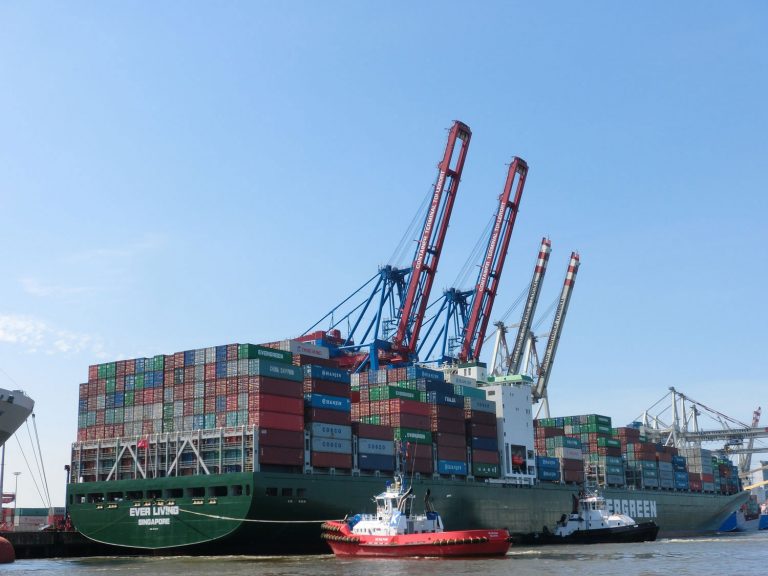
Date:
Global ports likely to face weeks of ‘critical’ delays
Terminal operations and supporting infrastructure at the most important mainland European and UK ports will be put under immense pressure over the next four weeks, as they try to work through the backlog of 1.9m teu delayed by the six-day Suez Canal closure.
Over 370,000 teu is currently en route to Singapore, adding to the 83 vessels anchored outside or already at the port, while Rotterdam is anticipating 15 ships (196,600 teu) this week, creating a lengthy queue behind the 85 vessels already at port or waiting to enter.
The scale of the congestion is immense and will be getting worse as further vessels arrive at their destination and this is without considering where all the containers will be stored and stacked once they are discharged, which will have added consequences.
New York is facing a backlog of 76,500 teu, either arrived or inbound from the Canal, while Port Klang has a build-up of 103,900 teu and Dubai 75,879 teu.
As ports attempt to clear this backlog, there will inevitably be a further impact on schedule reliability, with average port delays rising on the Shanghai-Rotterdam trade to seven days, compared with 2.79 days this time last year.
With almost 20 weekly container shipping services on the Asia-Europe trade calling at ports across Europe and Asia, recovering the lost schedules and limiting delays will be a massive task for carriers and port operators, particularly as the lines expect most services will miss one to two sailings, which will impact available capacity in the second quarter.
The recent canal blockage has led to a cumulative delay to shipping fleets of 1,072 days and the container shipping lines are doing their utmost not to lose voyages, even if that means omitting port calls, speeding up, rerouting or changing port rotations to avoid congested ports and keep weekly capacity elevated as closely as possible to original schedules.
Maersk has reopened its online bookings for spot shipments and short-term contracts, but booking acceptances by them, or any other line, will be determined by port capacity and equipment availability.
The hope is that the post-Suez impact on ports in Europe and the UK will pass quickly, but shippers should expect delays and equipment shortages at Asian ports to continue, because we have already missed two weeks in terms of getting equipment back to Asia.
Asian ports will feel the effects of the Suez disruption far more, with schedules affected later in the second quarter, making it even harder for carriers to get their schedules under control and empty containers positioned to regions that need them for loading – this situation is already becoming critical again and to a similar situation experienced before Chinese New Year.
Mediterranean ports experienced a 60% drop in export capacity during the Suez closure, with a sharp recovery as the vessels finally arrived, but capacity availability is fluctuating, with export cargo facing delays of a week or two, while ports at the Asia end of the trade will start to feel the impact of ship delays from mid-May.
On the Asia-North Europe trade lane, the volatility being experienced with capacity was more significant and longer lasting than on the Mediterranean, with the full effects expected to be felt in Asia in the week beginning 24th May. Over a month away, which demonstrates the longevity of the situation and time it will take to recover anything like a normal service situation.
Global supply chains will continue to be impacted by the fallout from the Suez Blockage for some weeks and possibly months and we will continue to communicate the most important developments, so that you can to adapt to the changing environment.
We have launched a ‘real-time’ GPS application on our MVT supply chain visibility platform, which is monitoring all Suez-impacted vessels, with consignment view to SKU level.
We are flexing, updating and adding alternative solutions and recoveries, across all modes of transport and geographies, to keep supply chains fully functioning.
Interest in our award winning air and sea/air products, as a recovery for ocean freight delays, has increased massively and we would encourage you to contact us without delay, if you have critical import or export Asia shipments pending.
Please contact Elliot Carlile or Grant Liddell to learn how we can support your time-sensitive requirements and ensure that every deadline is achieved, even in the current challenging market conditions.
